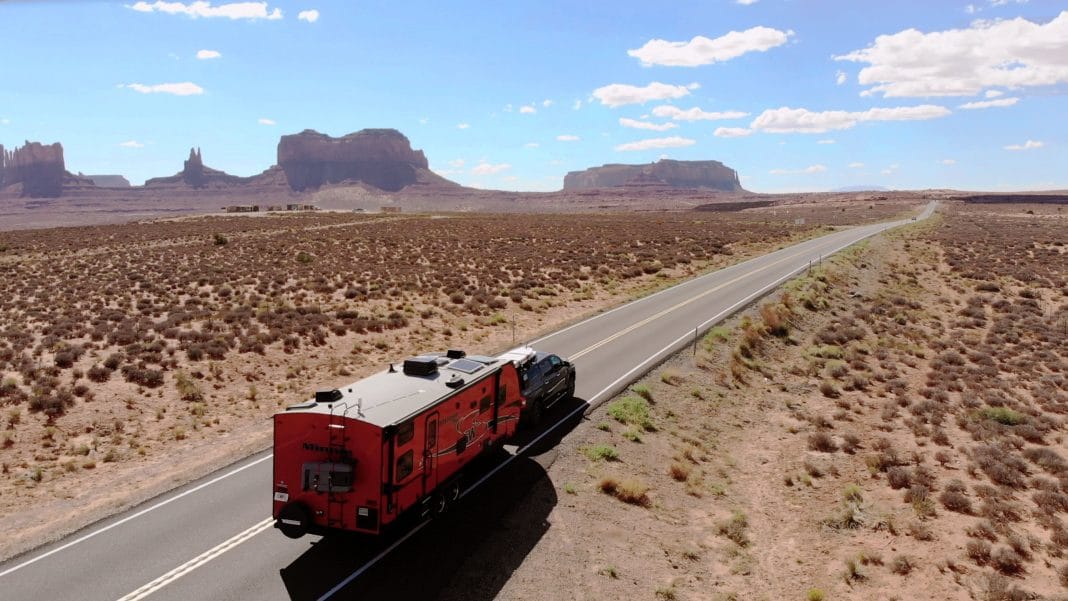Q:
My question is about engine-oil viscosity and recommendations. I drive a 2000 Chevrolet 2500 pickup with a 6-liter gas engine. About 90 percent of the time, it’s pulling an 8,000-pound travel trailer, so it’s working hard. The owner’s manual recommends using 5W-30 engine oil. When I initially bought the truck several years ago, I tried using a 5W-30 fully synthetic national brand oil but was going through a quart of oil every 1,500 miles or so.
My mechanic suggested the oil I was using was too light. He claimed the only reason Chevrolet recommended using 5W-30 oil was to maximize fuel economy, not engine longevity. He recommended a minimum 10W-30 synthetic. I switched, and the oil consumption dropped dramatically. Since then, several people have suggested I go to something even heavier, such as a 15W-40 (a popular oil for diesels), or even a 20W-50. What are your thoughts?
John Goldsmith | Chilliwack, British Columbia
A:
Fuel economy is, in fact, a driving factor behind the seemingly too-light oil recommendations made by the vehicle manufacturers, John. Check your owner’s manual for oil recommendations under different driving conditions, and you’ll likely find that, under severe service, something like the 10W-30 you’re using, or even 15W-40, is recommended, so you aren’t hurting the engine by using higher-viscosity oils. The 20W-50 would probably be overkill, however.
I appreciate your mechanic’s recommendations, but if in doubt, always refer to the oil chart in your owner’s manual.
Half-Ton Fifth-Wheel Towing
After borrowing a set of scales to set up my Prime Time Avenger ATI 27DBS with my 2016 F-150 with EcoBoost, I am wondering how people are legally pulling fifth-wheels with half-ton trucks. It would be hard, if not impossible, with the listed pin weights of even “lightweight” fifth-wheels to come in under payload capacity with a family of four in the truck. I want to make the switch to a fifth-wheel someday for our weekend adventures, but I’m finding the weight is restricting me from doing so. What am I missing?
Bryan Pollock | Newfane, New York
A:
You aren’t missing anything, Bryan. It’s true that a light-duty pickup has a limited payload capacity that hampers its ability to haul a family-size fifth-wheel trailer along with a full passenger and cargo load. Some of those other light trucks you see hauling fifth-wheels are probably overloaded from the manufacturer’s standpoint, but that’s how some people choose to tow.
You’re doing the right thing by paying attention to the weight figures and manufacturer ratings. Going by the book, you may not be able to find a fifth-wheel with comparable interior space and accommodations to your travel trailer while also avoiding an overloaded situation. Perhaps, after considering all the factors, sticking with a travel trailer might help you avoid making an expensive switch to a larger pickup.
More End-Cap Fading
I have read several letters in Trailer Life about readers’ problems with end caps fading on trailers and fifth-wheels. I have a 2013 Keystone Montana fifth-wheel, which is white, but the front end cap is noticeably faded.
For years, the auto industry has been clear-coating vehicles, and they stay bright and shiny year after year. Also, fiberglass cars stay the same.
Why doesn’t the RV industry adopt that process for end caps?
Ed Kausch | Oxford, Michigan
A:
Autos stay shiny longer because their finish is paint over a steel or fiberglass body, with clear coat sometimes applied over that paint, Ed, and the fading and chalking you see on an RV end cap is the gel-coat finish that’s part of the base fiberglass going bad. Some RV manufacturers apply paint over the fiberglass, and that can help add years to how long the RV looks good. The quality of the gel-coat finish has a lot to do with how long it lasts,
although factors like indoor versus outdoor storage, regular waxing and such also contribute to durability.
About all you can do is have the fading end cap(s) buffed and polished, keep up with cleaning and waxing, and provide protection from the sun when in storage.
Trouble with Roof Bubbles
We purchased a 2015 CrossRoads Cruiser Aire fifth-wheel in 2016 from a local dealer. We love the trailer, but, unfortunately, due to health issues, we have taken it out only five times so far. We also purchased a carport, so it would not be subject to the harsh sun down here in Texas.
While cleaning it, I discovered some small bubbles on the roof. There were three of them, and they were about 4 inches long and 1½ inches wide, with two others along the front cap. I took the RV back to the dealer, and the tech guy said he didn’t believe there was a problem. He steered me to some Dicor cleaner and UV protectant, and some roof putty. I would like to believe him, as this dealer has been great to work with, but the warranty on the trailer is almost up, and if there is something the manufacturer should take care of before other costly issues arise from a bad roof, I would like to address them ASAP.
Charles Reyna | Livingston, Texas
A:
Small bubbles in a rubber RV roof, even on a new RV, unfortunately, are fairly common. They indicate that some of the adhesive used to secure the roof membrane in place has given up the ghost, and that allows the roof to bubble upward when traveling. The natural airflow over the roof tends to pull the rubber up and cause the bubbles. As long as the bubbles stay small, they aren’t a problem, but if they get significantly larger, they’ll need to be repaired.
You might want to get assurance, preferably in writing, that if the bubbles expand, partly because the dealer “didn’t believe there was a problem” with the smaller bubbles, the dealer will take care of them as a previously unresolved warranty matter.


